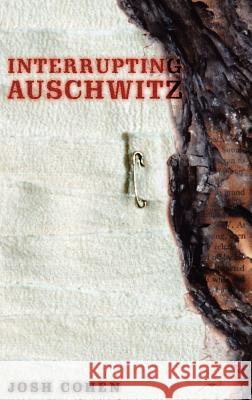Interrupting Auschwitz: Art, Religion, Philosophy » książka
Interrupting Auschwitz: Art, Religion, Philosophy
ISBN-13: 9780826455512 / Angielski / Twarda / 2003 / 186 str.
Interrupting Auschwitz: Art, Religion, Philosophy
ISBN-13: 9780826455512 / Angielski / Twarda / 2003 / 186 str.
(netto: 931,00 VAT: 5%)
Najniższa cena z 30 dni: 966,72
ok. 22 dni roboczych.
Darmowa dostawa!
Hitler, wrote Theodor Adorno, imposed "a new categorical imperative on humankind...to arrange thoughts and actions so that Auschwitz will not repeat itself." Interrupting Auschwitz argues that what gives this imperative its philosophical force and ethical urgency is the very impossibility of fulfilling it. But rather than being cause for despair, this failure offers a renewed conception of the tasks of thought and action. Precisely because the imperative cannot be fulfilled, it places thought in a state of perpetual incompletion, whereby our responsibility is never at an end and redemption is always interrupted.Josh Cohen argues that both Adorno's own writings on art after Auschwitz and Emmanuel Levinas' interpretations of Judaism reveal both thinkers as impelled by this logic of interruption, by a passionate refusal to bring thought to a point of completion. The analysis of their motifs of art and religion are brought together in a final chapter on the poet-philosopher Edmond JabFs.











